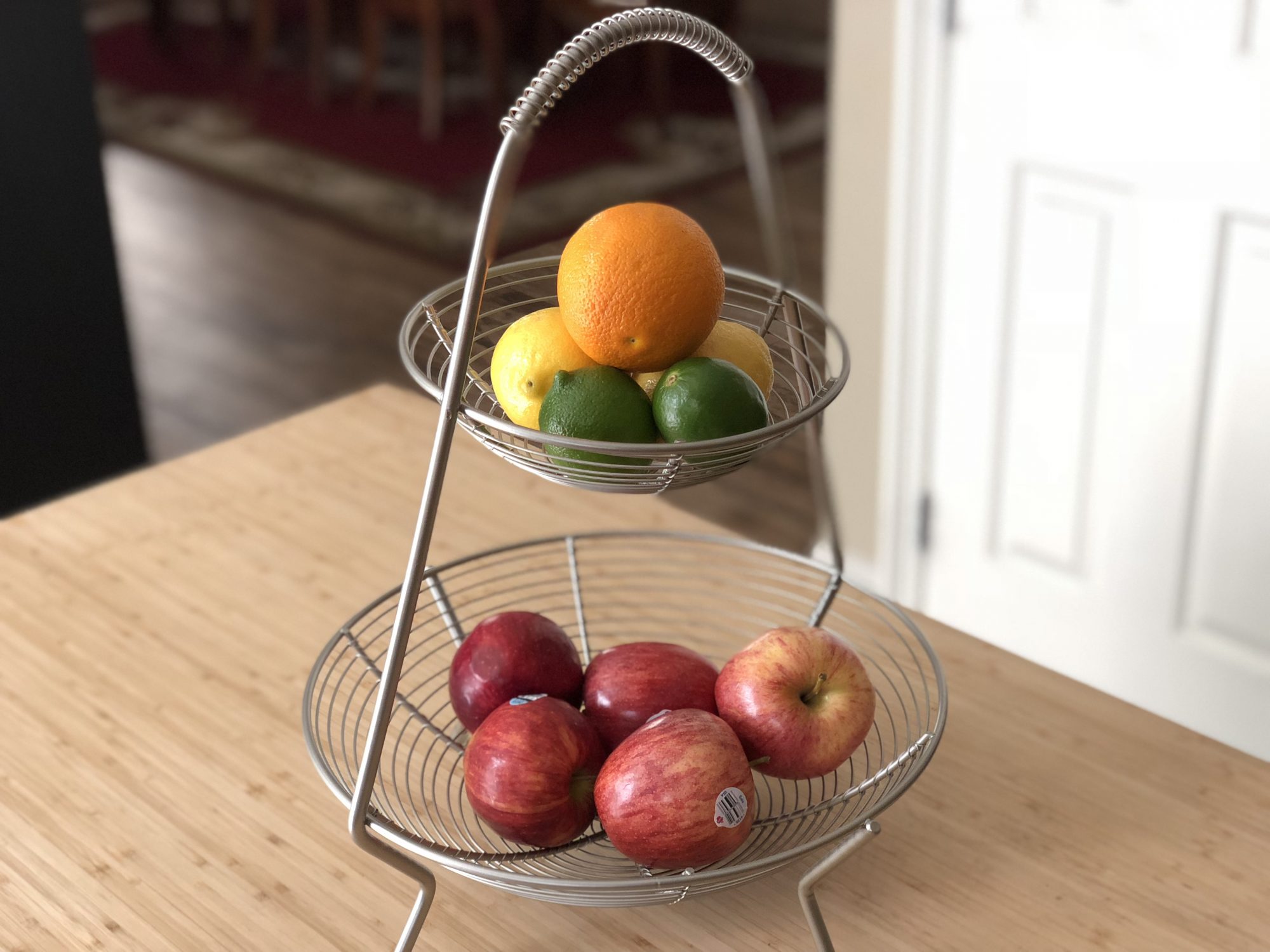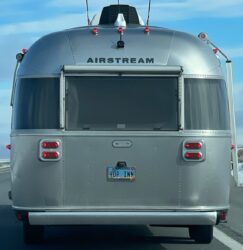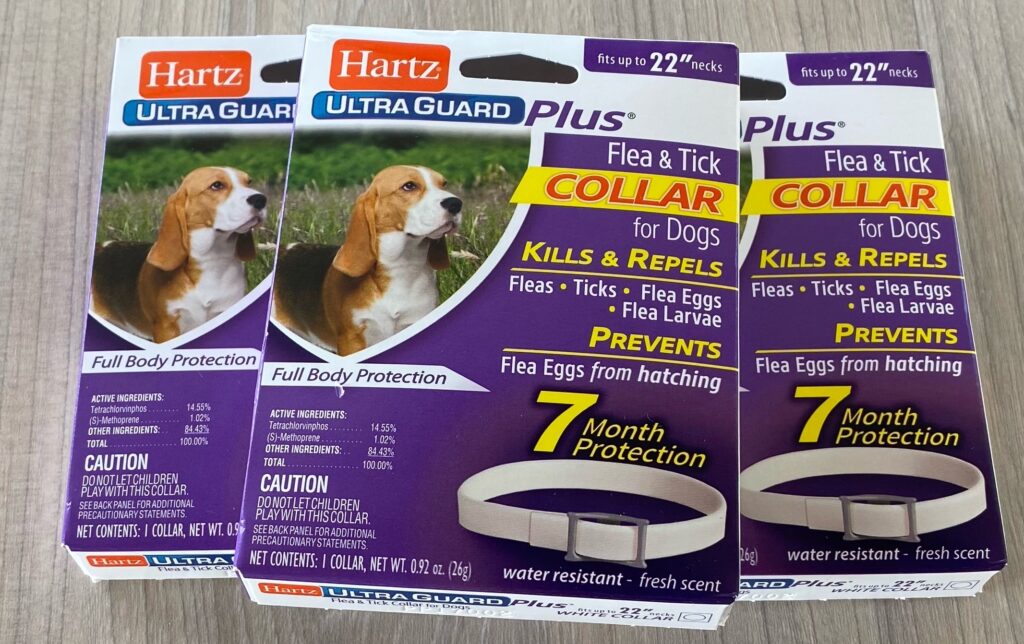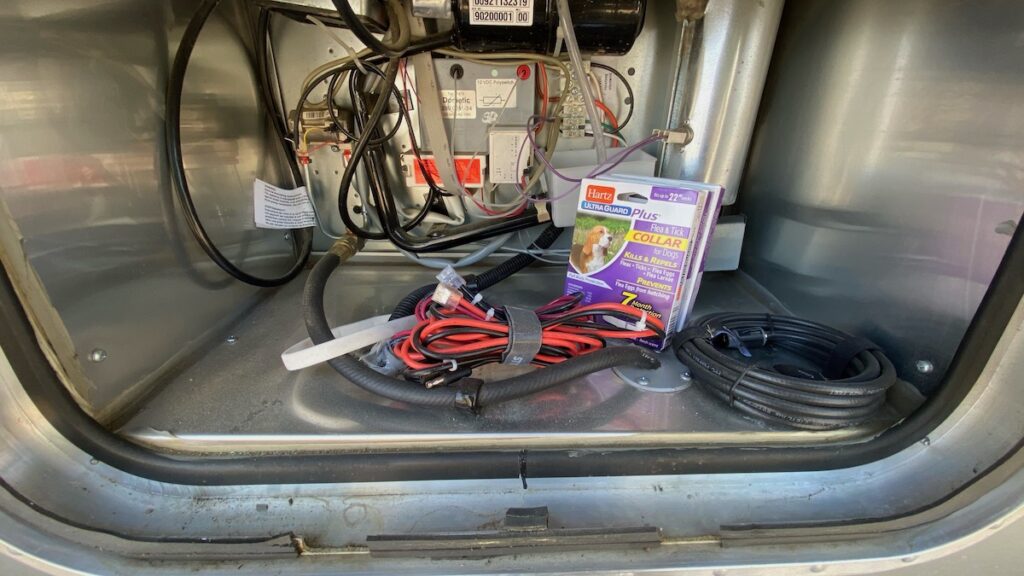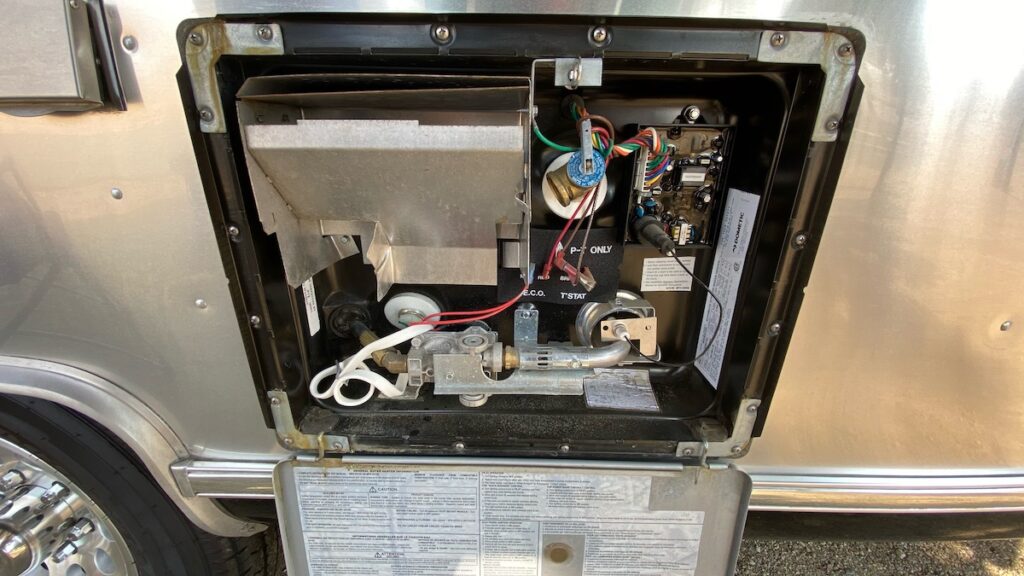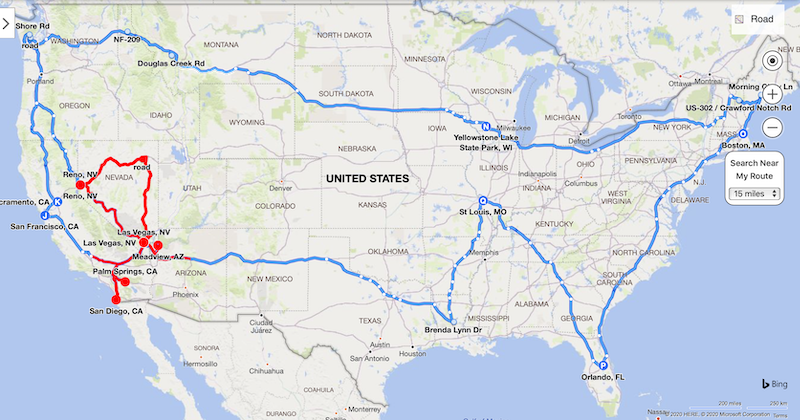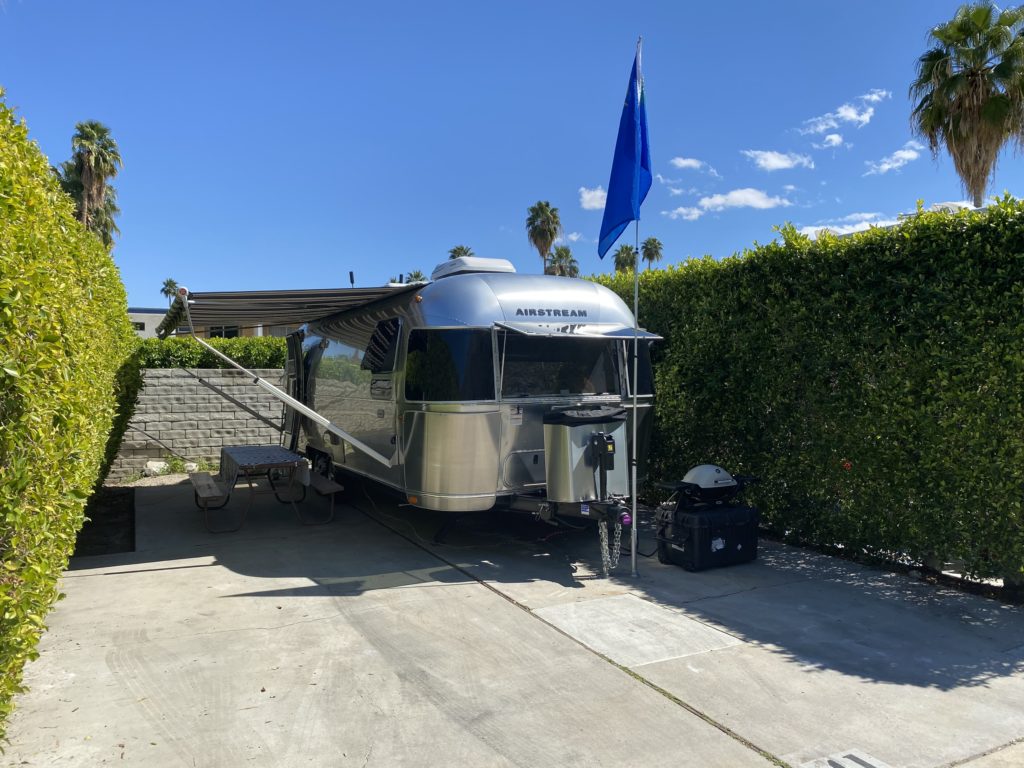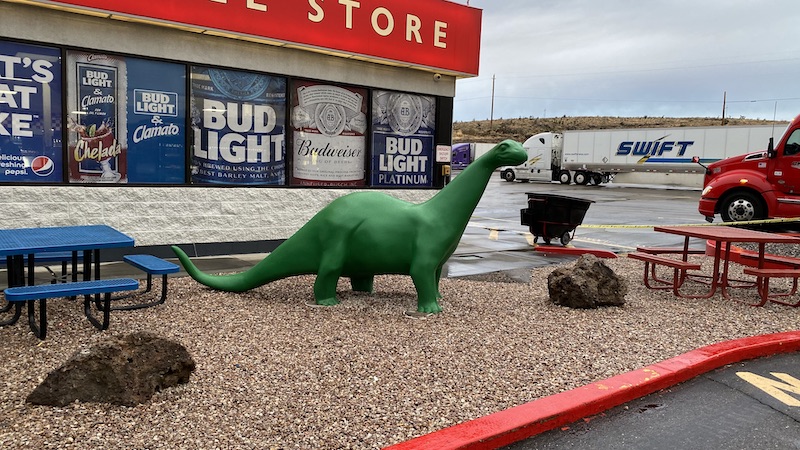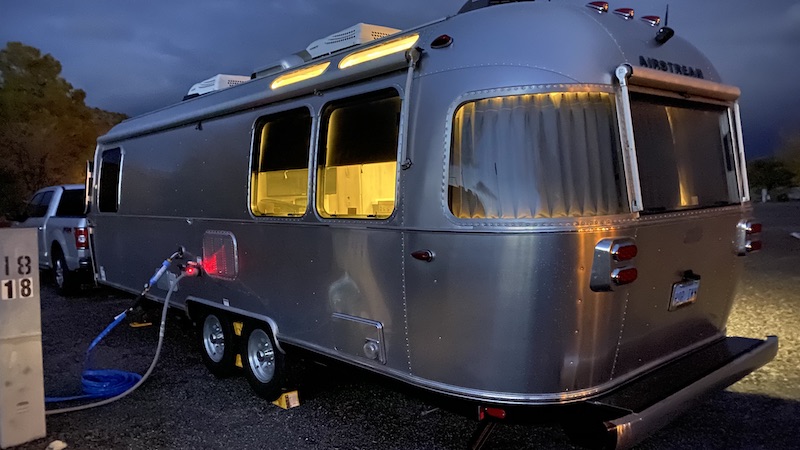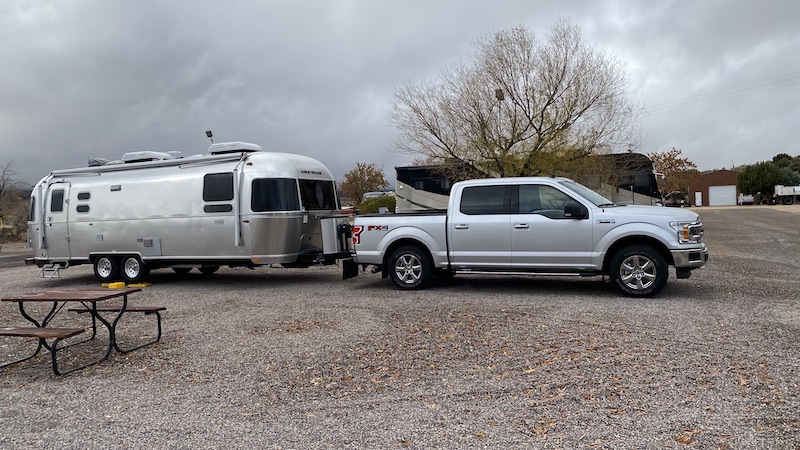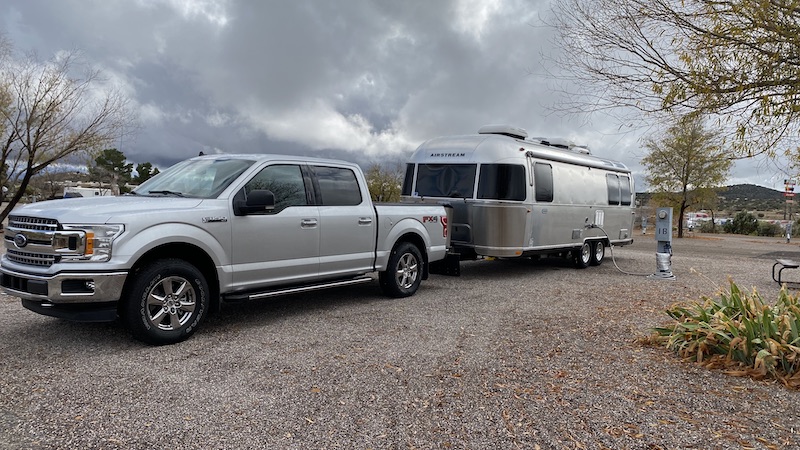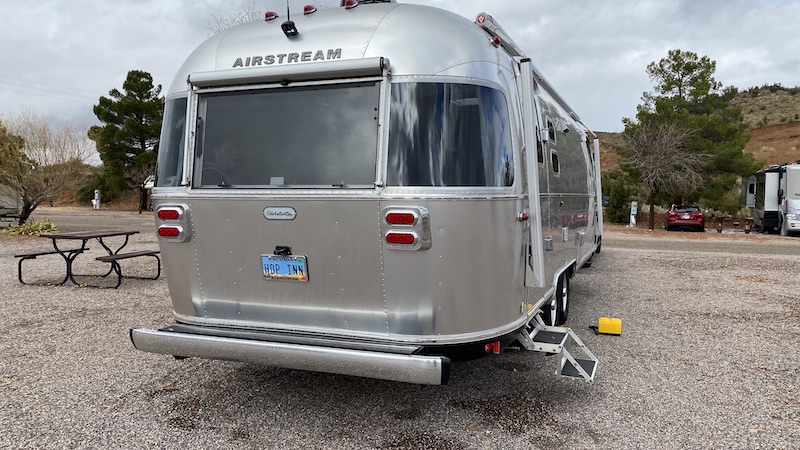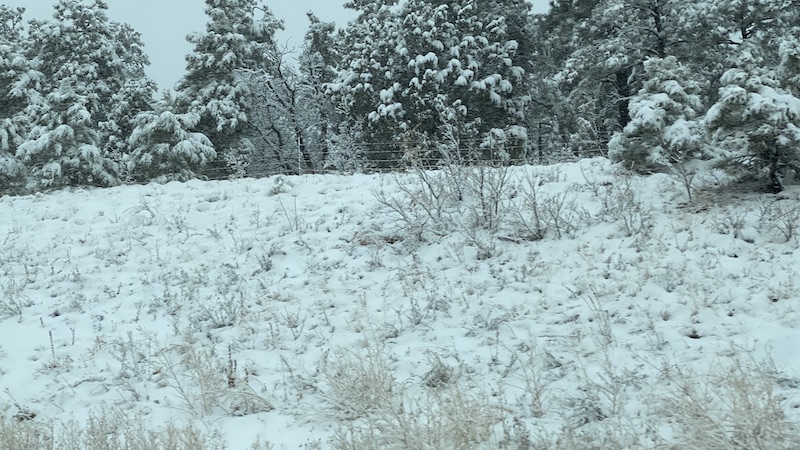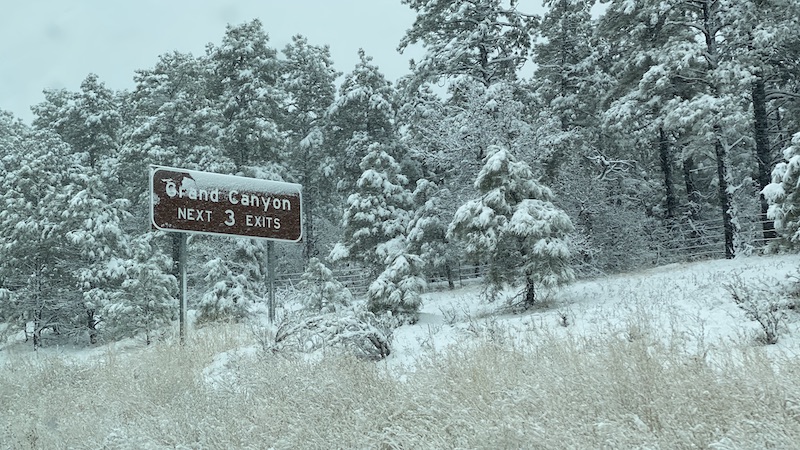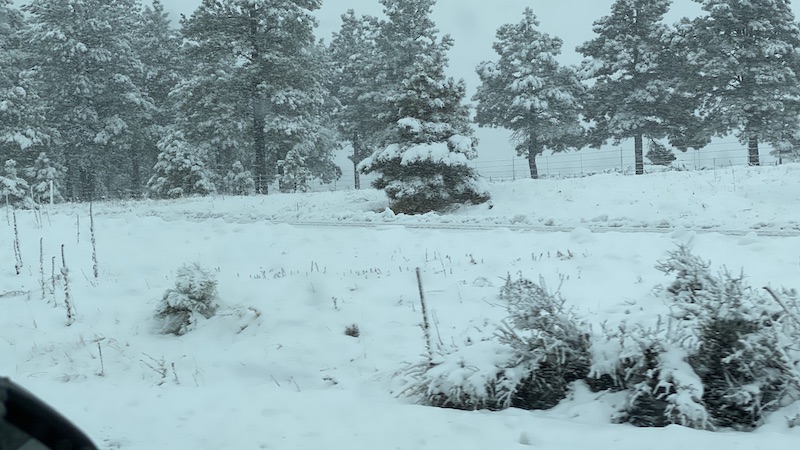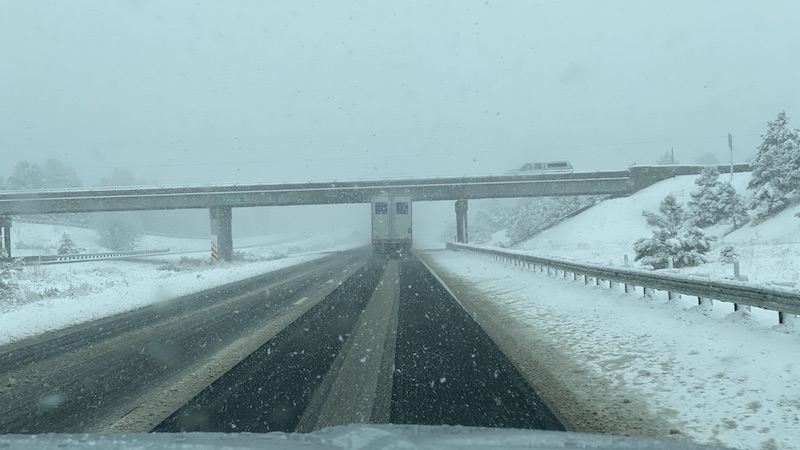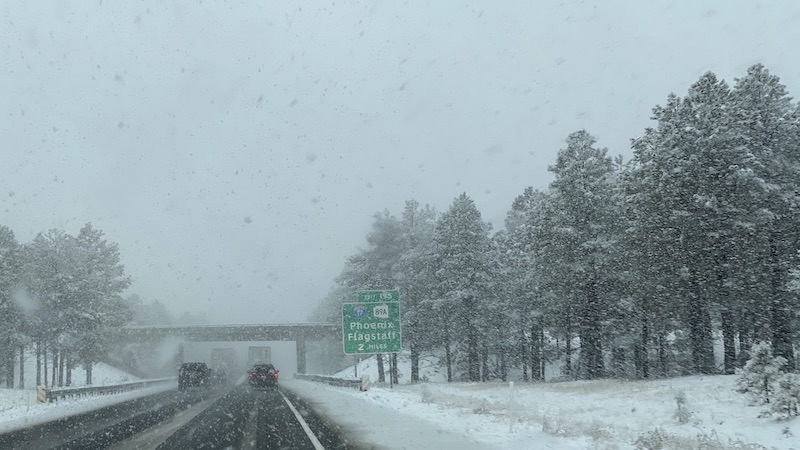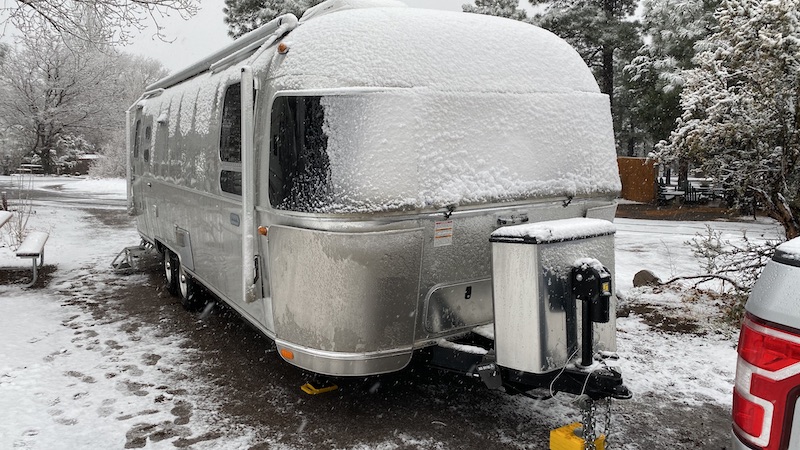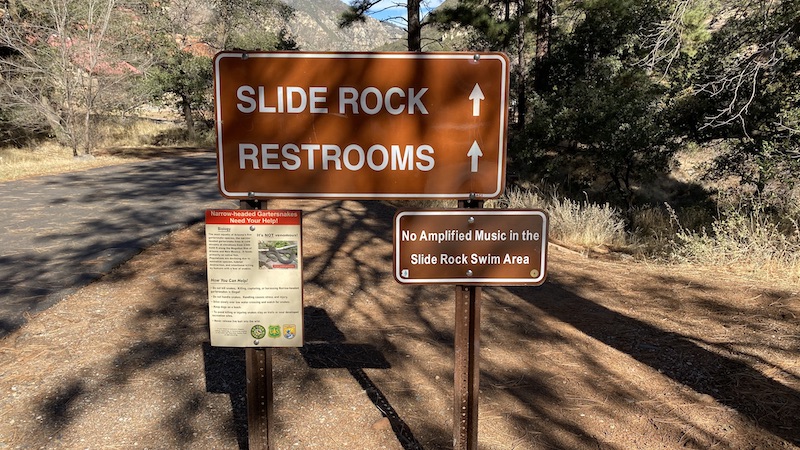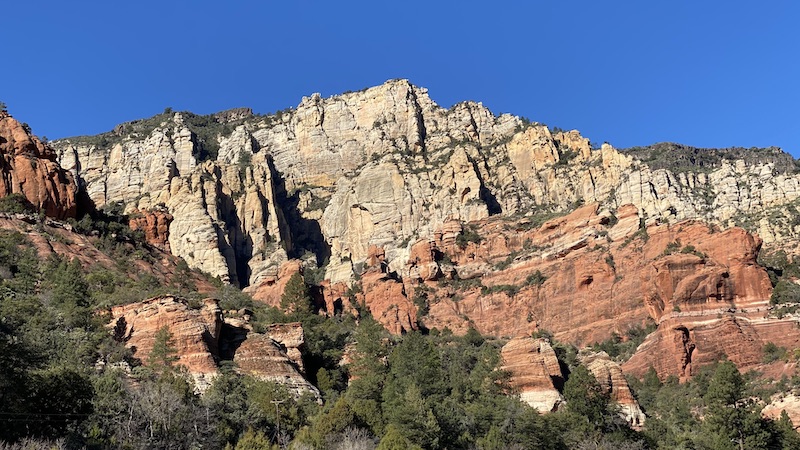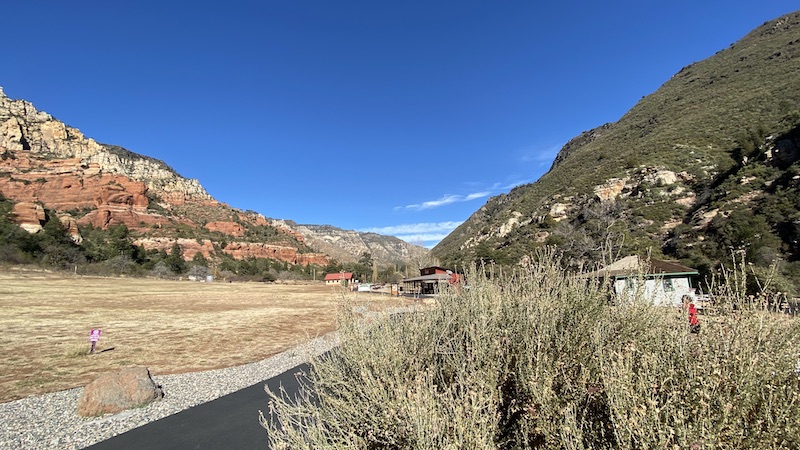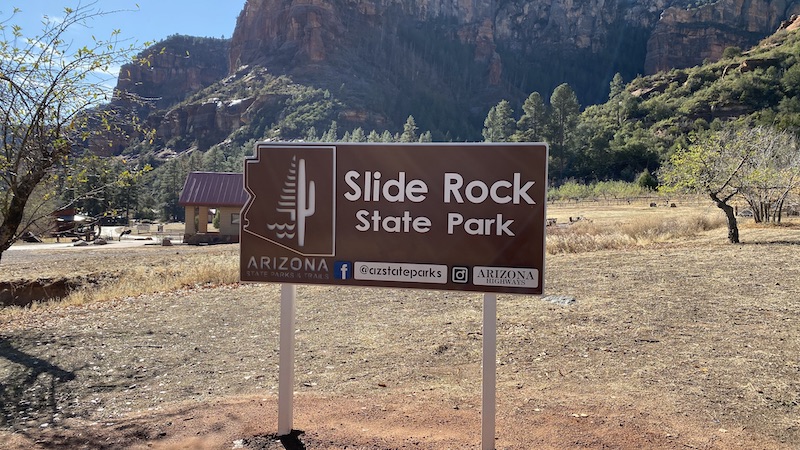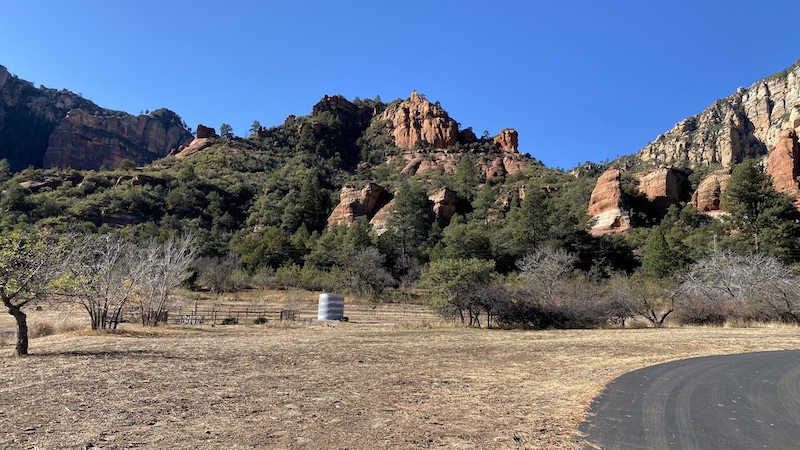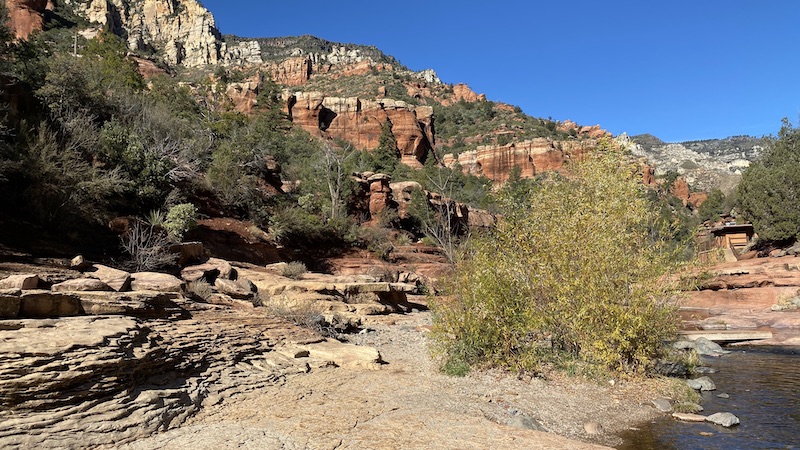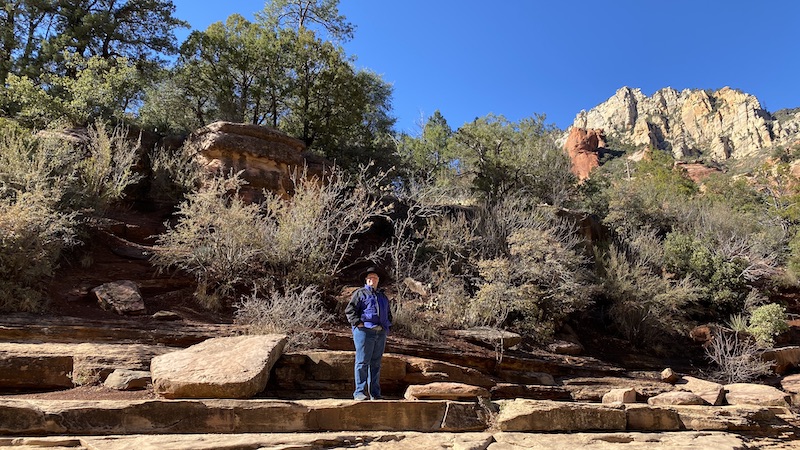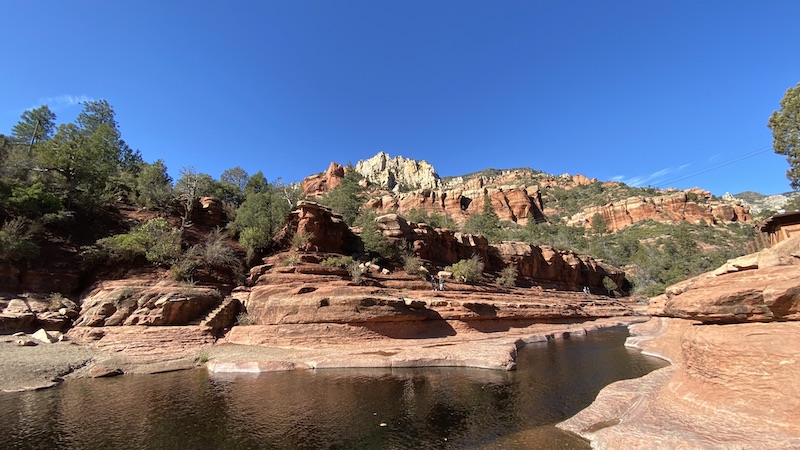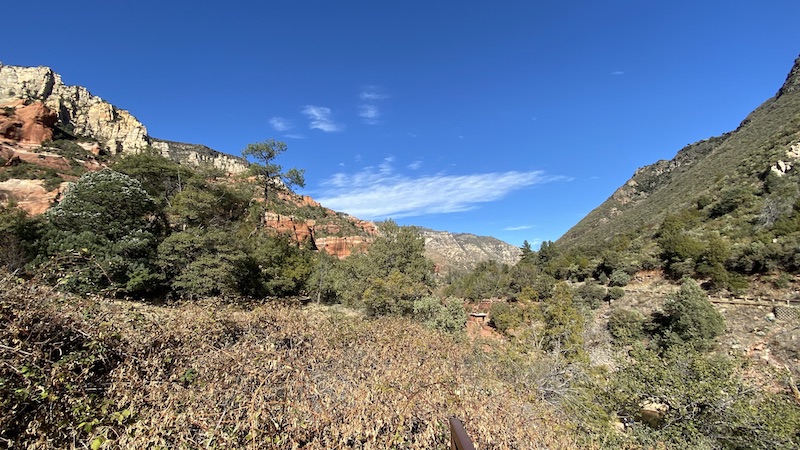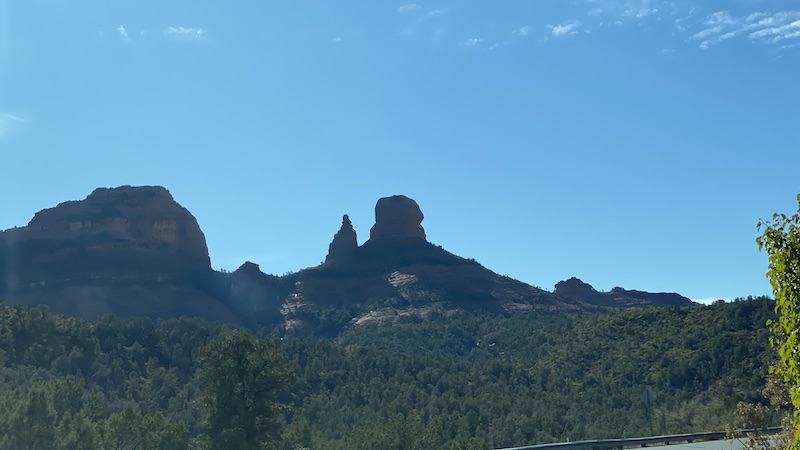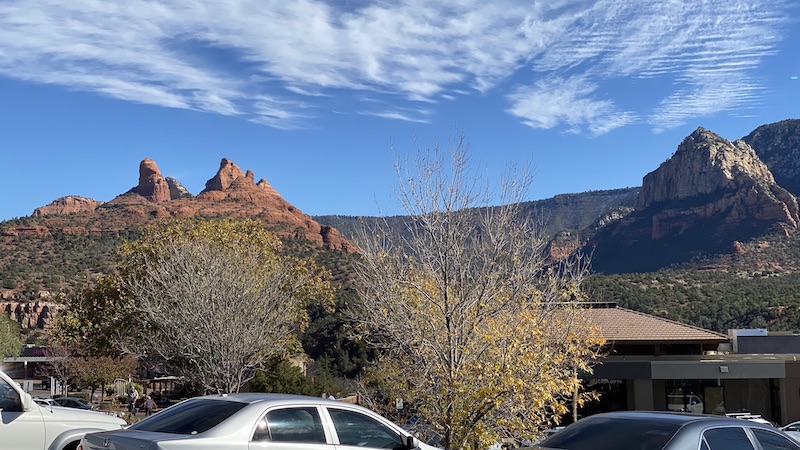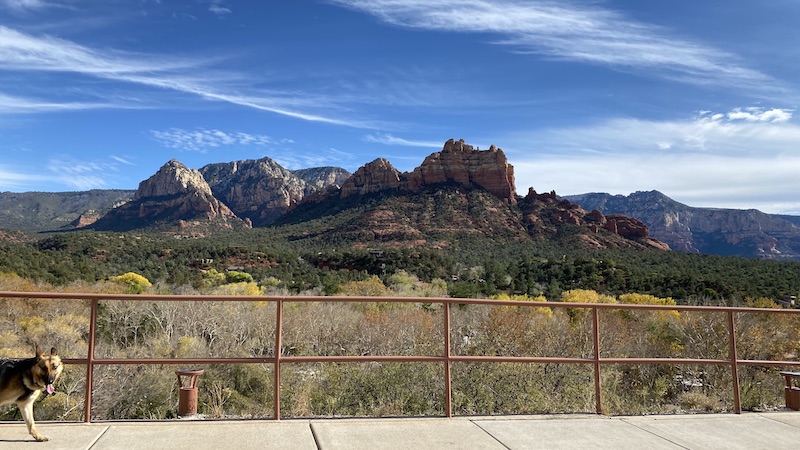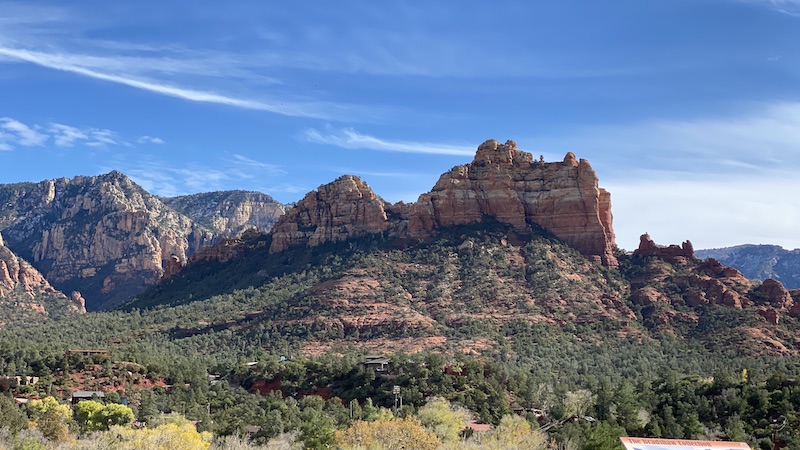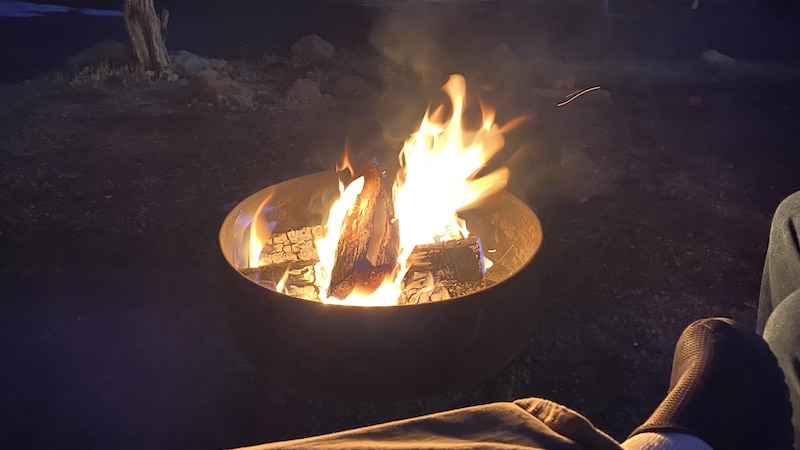Last year we found ourselves camping out in Arizona during a snow storm. We were prepared with a heated water hose and lots of propane. Earlier this year we camped out in Elko, Nevada and dialed in our cold weather camping. Currently we are out in Winnemucca, Nevada surrounded by snow capped mountains and several inches of fresh snow on the ground.
It’s -5ºC (23ºF) outside as I type this.
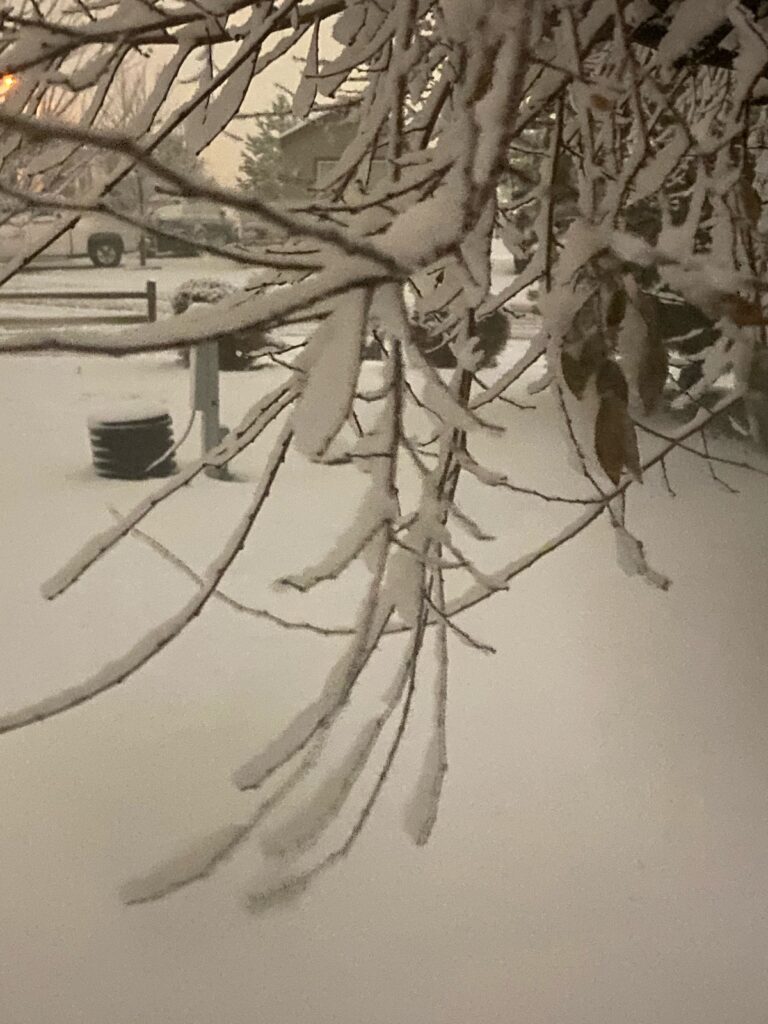
We’re comfortably warm in our Airstream and are doing things to ensure that everything operates as expected during these winter camping trips.
What do we do to say warm while camping below freezing?
First and foremost we try to camp where we have power. Electricity means we can run our two small electric heaters day and night. These little guys provide enough heat to keep the interior at 22ºC (71.6ºF) all day into the night. We usually run one on high and the other on low during the day, and both on low at night with the propane furnace set to 15ºC (59ºF) just in case something happens…
Our Airstream has a furnace fed heating duct running to the fresh water, gray water, and black water holding tanks. We like to run the furnace for an hour in the evening when the temperature is going to go below freezing to warm up the fluids in the tanks so they don’t freeze overnight.
Speaking of the tanks, we do empty the gray and black water holding tanks before bed (and after our nightly showers). This ensures that the valves are not frozen and we start the next day with empty dirty water holding tanks.
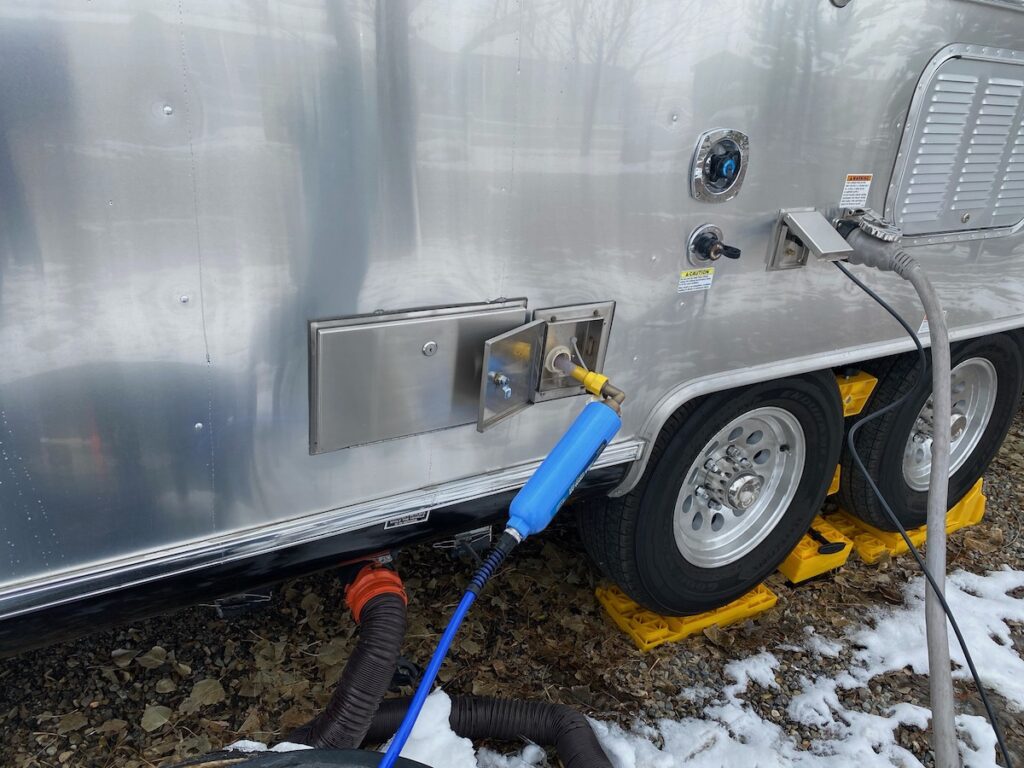
For the fresh water tank, we fill it to the top and let the expansion valve do it’s thing. That large mass of liquid water isn’t going to freeze overnight, especially with the duct from the furnace and that we open all the compartment doors.
Compartment doors you ask? Yup, every evening before bed we open up all the storage compartments and leave them open. This way the heat from our space heaters (and furnace if it comes on) put heat in every nook and cranny of our home. The access panels feed directly to the holding tanks giving additional heat to what the furnace provides. Additionally, by opening all the compartments we expose all the plumbing and pumps to the nice warmth provided by the space heaters.
Another thing we do is close up all the window shades and sun shields. This helps trap the heat in as our Airstream only has single pane glass windows.
When emptying tanks we don’t force the valves. If they seem stuck or frozen we put one of the two space heaters under the valve for about thirty minutes – we’ve only had to do this once. It worked.
We also tend to cook things that use the oven which heats up the place big time. Three seasons of the year we do all our cooking outside using our various camp kitchens, but during the winter, cooking inside helps heat up the coach as the sun sets.
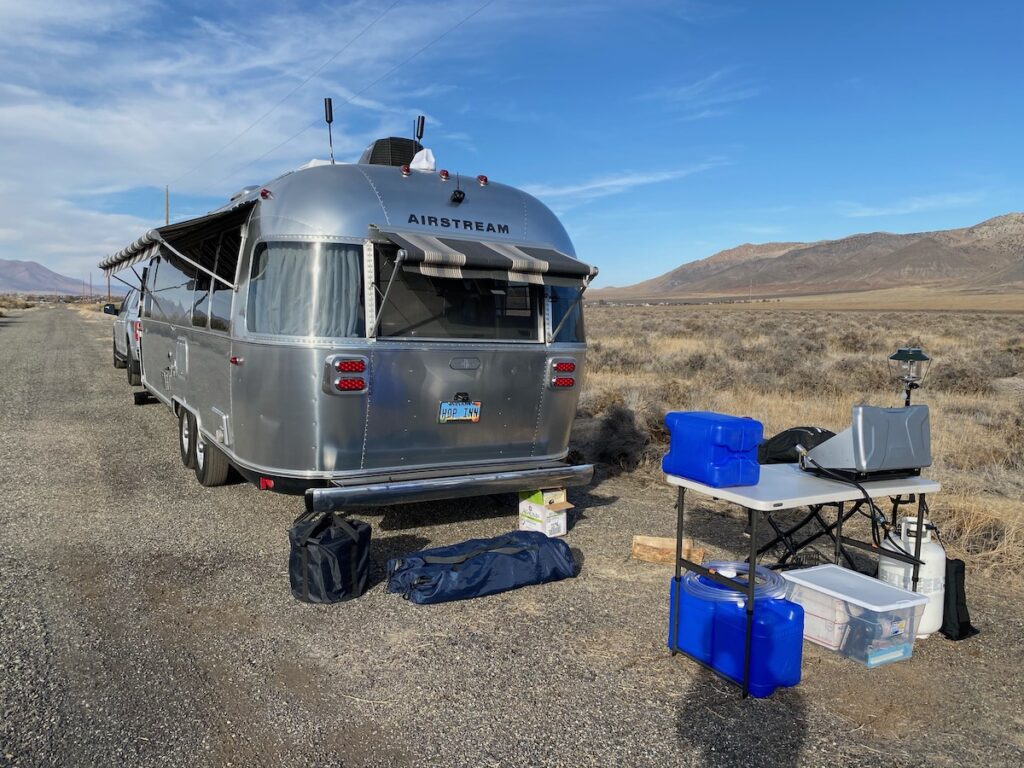
The most important thing for us when camping in below freezing temperatures is keeping the heat inside the coach and protecting the plumbing. We do this through using the tools provided by our Airstream as well as two space heaters (which run silent compared to the furnace and heat pumps) and a cold weather water hose.
Four season camping is fun.
One just has to plan for each season.
Personally, I’m a fan of long underwear. Keeps me warm when I have to leave the coach and is the perfect loungewear for when I’m inside.
